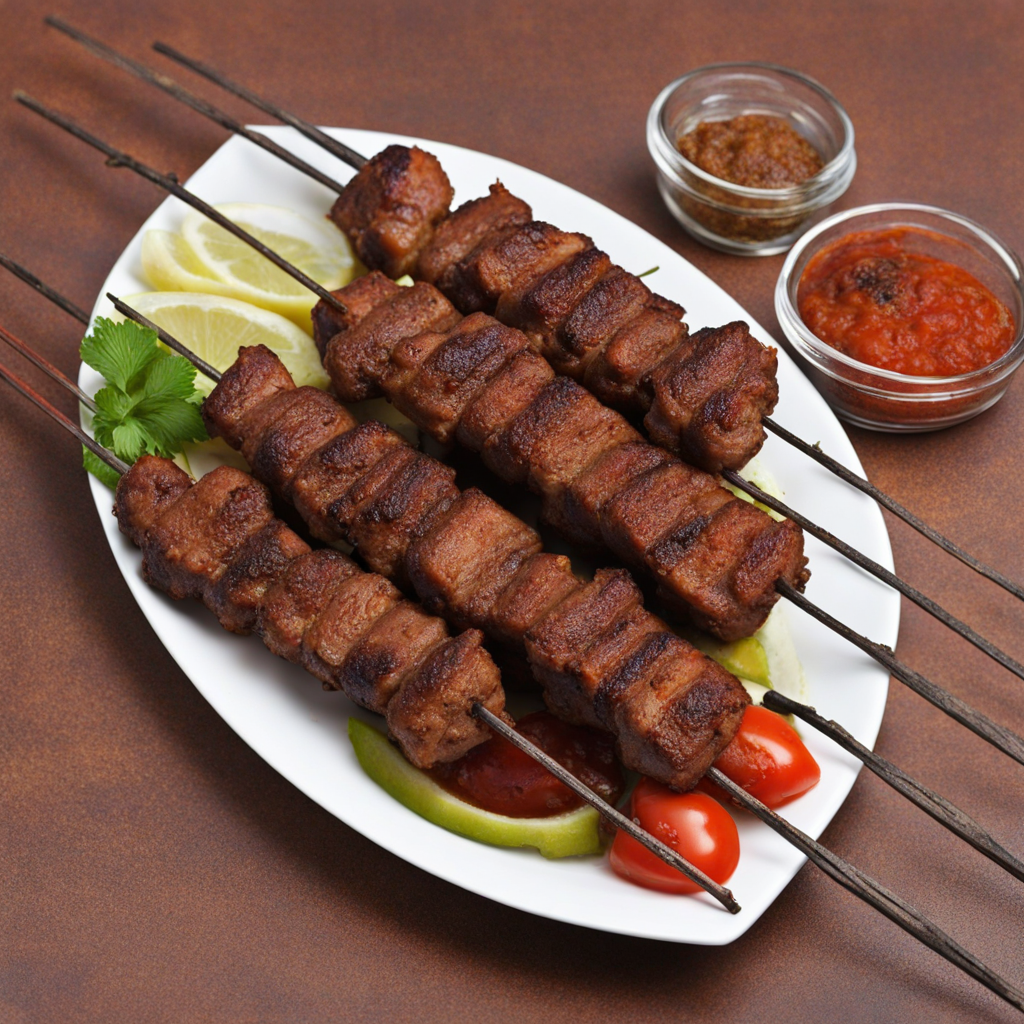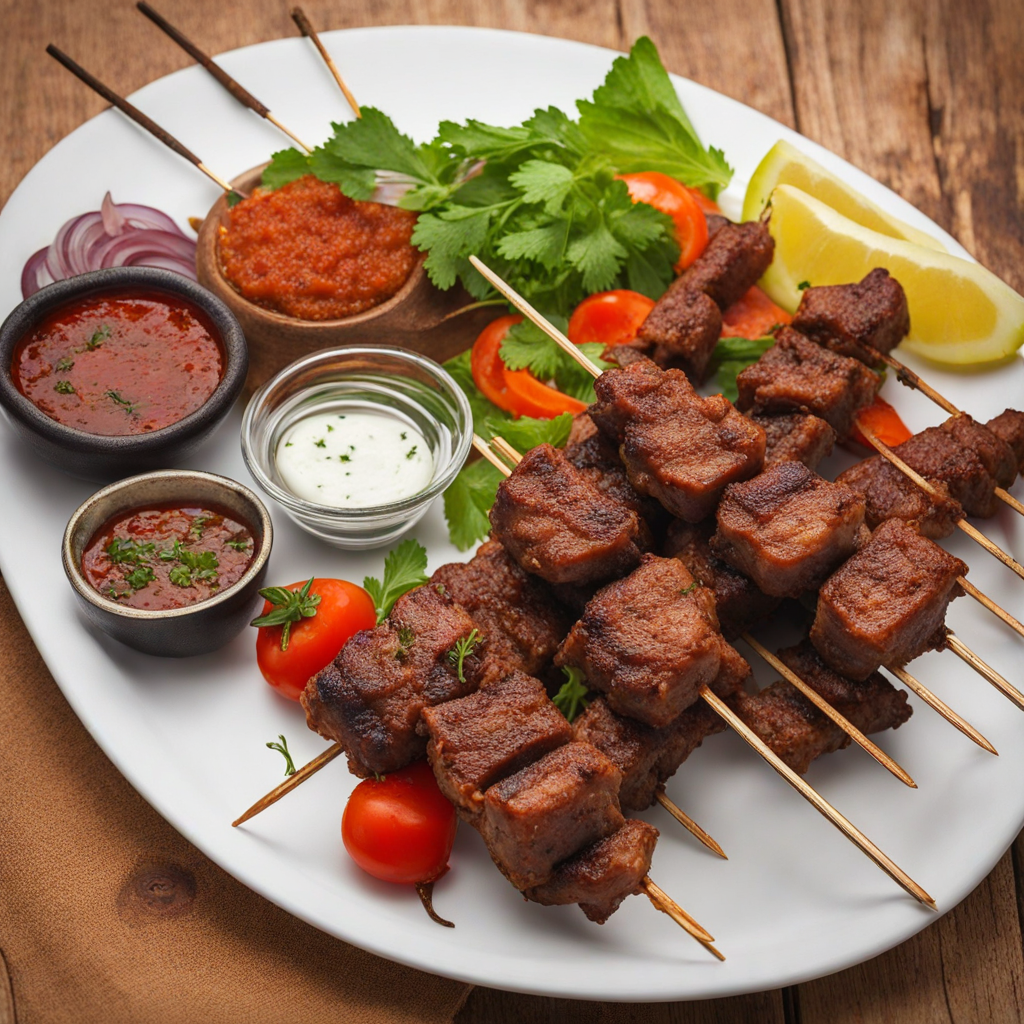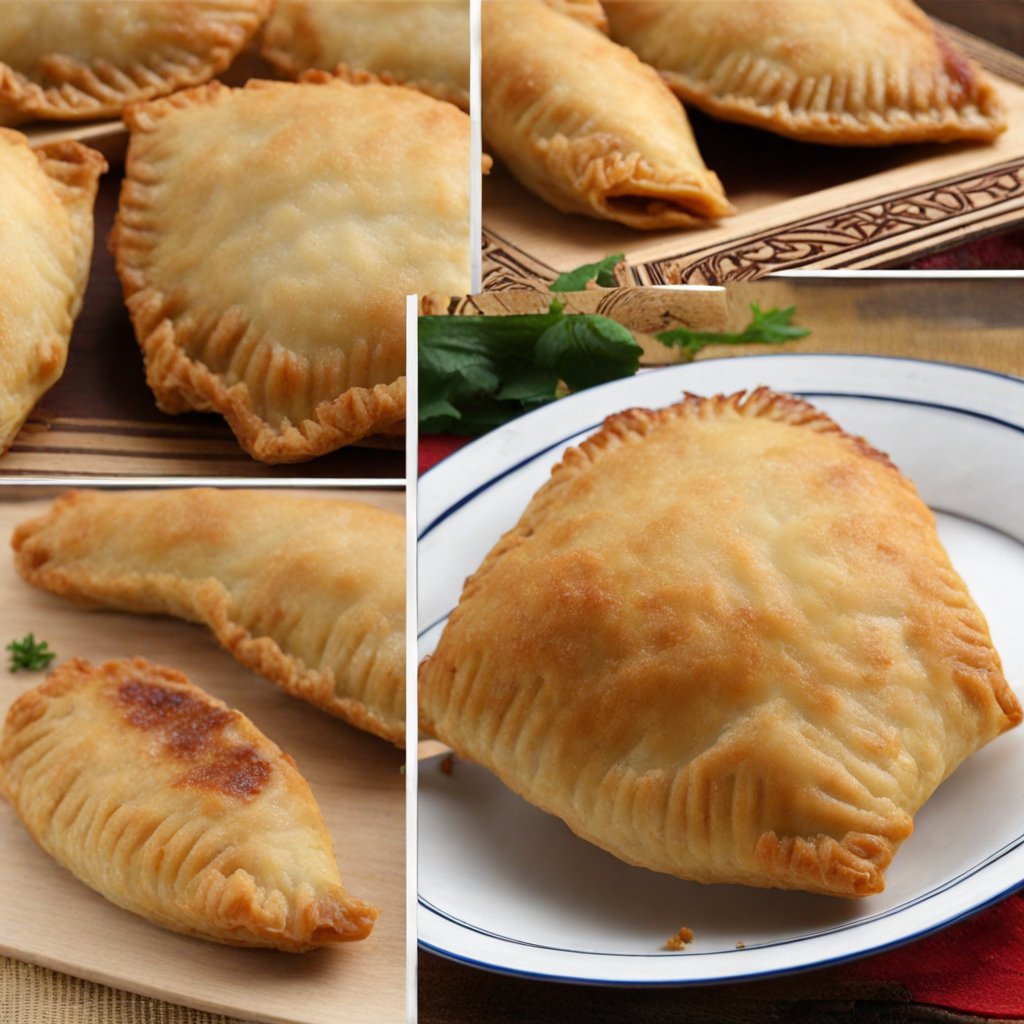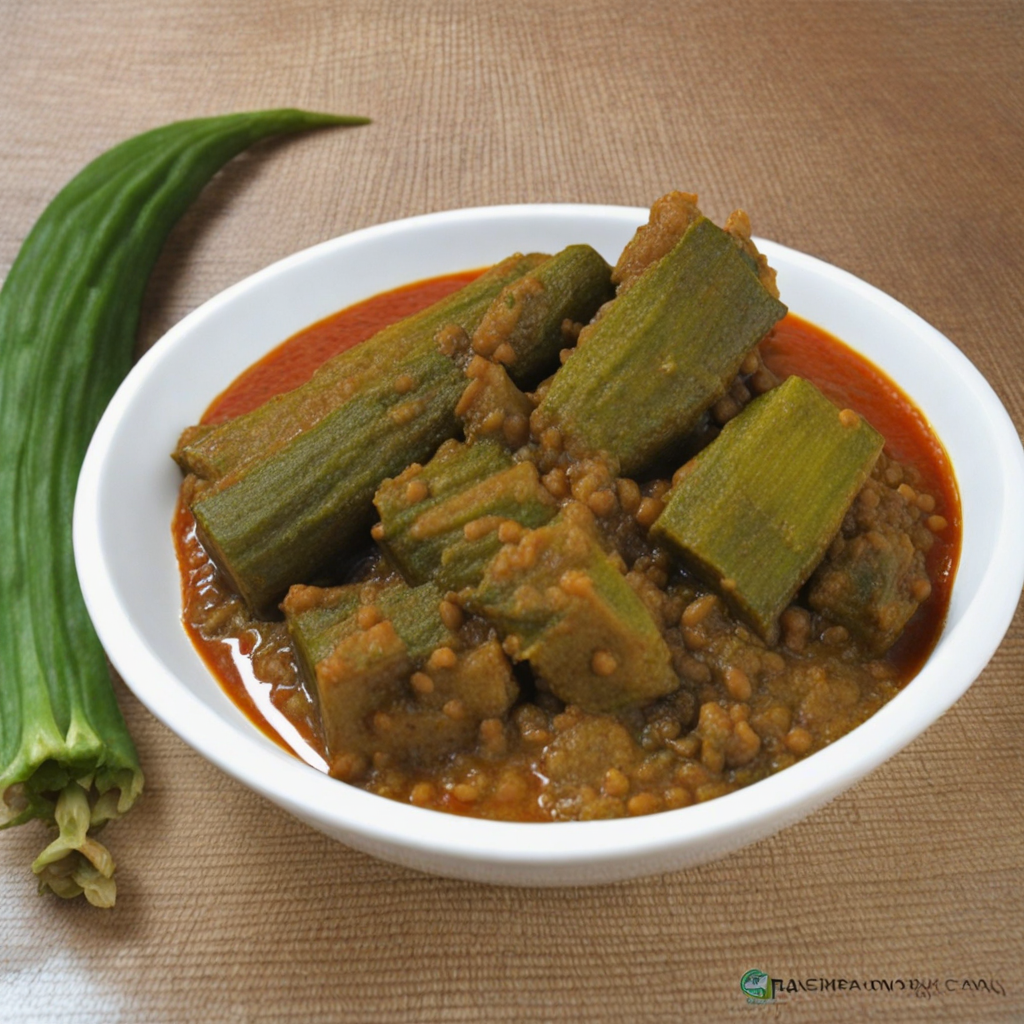Spiced Meat Skewers
Brochettes, a beloved street food in Niger, are skewered meat delicacies that have become a staple in the culinary landscape of West Africa. The dish has its roots in the region's rich history of nomadic tribes who relied on livestock for sustenance. Over time, the preparation of brochettes evolved, influenced by various cultures and cooking techniques, creating a dish that embodies the essence of Nigerien gastronomy. The primary ingredient in brochettes is typically marinated meat, which can vary depending on regional preferences and available resources. Common choices include beef, goat, or chicken, all of which are seasoned with an array of spices that reflect the vibrant flavors of West African cuisine. The marination process is crucial, as it allows the meat to absorb the flavors, enhancing its taste and tenderness. Spices such as garlic, ginger, and local chili peppers often find their way into the marinade, along with a generous sprinkle of salt. Some recipes might also incorporate traditional Nigerien seasonings like bouillon cubes, which add depth and umami to the dish. The preparation of brochettes is a time-honored practice that typically involves skewering chunks of marinated meat onto long, thin sticks. These skewers can be made from metal or bamboo, with the choice often depending on the cook's preference and the cooking method. Once assembled, the skewers are grilled over an open flame or on a charcoal grill, allowing the meat to develop a smoky flavor and a tantalizing
How It Became This Dish
The History of Brochettes in Niger: A Culinary Journey #### Origins and Cultural Significance Brochettes, or skewers of grilled meat, have woven their way into the culinary tapestry of Niger, a landlocked country in West Africa known for its diverse cultures and traditions. The word "brochette" is derived from the French term for "skewer," reflecting the country's historical ties with France due to colonial influence. However, the roots of this dish run much deeper, tracing back to the nomadic lifestyle of the Tuareg and other indigenous tribes who roamed the Sahel region. The origin of brochettes can be linked to the pastoral practices of these communities, who relied on livestock such as goats, sheep, and cattle for sustenance. The act of grilling meat over open flames not only provided a practical way to prepare food while on the move but also became a communal activity that fostered social bonds. The Tuareg, with their rich traditions of hospitality and storytelling, would often gather around a fire, sharing stories and meals that celebrated their connection to the land and each other. Culturally, brochettes symbolize more than just a meal; they represent community, hospitality, and the joy of sharing. In Niger, food is an integral part of social gatherings, from family celebrations to larger festivals. Brochettes often take center stage at these events, showcasing the skills of the cook and the flavors of local spices. The preparation of brochettes is an art form, with each region boasting its unique seasoning blends, which might include a mix of pepper, garlic, and local herbs. This regional variation is a testament to Niger's rich cultural diversity, as different ethnic groups bring their culinary influences to the table. #### Development Over Time As Niger evolved through the centuries, so too did the practice of preparing brochettes. The arrival of Islam in the region in the 11th century introduced new culinary practices and ingredients, which began to blend with indigenous traditions. The use of spices became more pronounced, with influences from trade routes that connected the Sahel to North Africa and beyond. This cultural exchange enriched the flavors of brochettes, making them a dish that not only satisfied hunger but also told stories of migration and trade. During the colonial period, the introduction of French culinary techniques further transformed the preparation of brochettes. While the French influence may have been initially met with resistance, it eventually led to a blending of cooking styles. For example, the French practice of marinating meat before grilling became popular in Niger, adding depth and complexity to the flavor profile of brochettes. This fusion of techniques exemplifies how food can serve as a bridge across cultures, fostering understanding and collaboration. In the post-colonial era, the significance of brochettes grew as they became a symbol of national identity and pride. As Niger gained independence in 1960, there was a renewed interest in traditional foods that reflected the country’s heritage. Brochettes became emblematic of Nigerien culture, appearing at local markets, street food stalls, and in homes across the nation. The dish became a staple at celebrations, from weddings to religious holidays, reinforcing its status as a beloved culinary tradition. #### Modern-Day Brochettes Today, brochettes remain an essential part of Niger’s culinary landscape. They are commonly made with various types of meat, including beef, goat, chicken, and even fish, depending on regional availability and preference. Street vendors often serve brochettes accompanied by a side of spicy sauce or a fresh salad, making them a popular choice for both locals and tourists seeking an authentic taste of Niger. The preparation of brochettes has also adapted to modern influences. While traditional methods continue to thrive, some cooks experiment with flavors and techniques, incorporating elements from global cuisines. This evolution reflects the dynamic nature of food, illustrating how it can adapt over time while still honoring its roots. The significance of brochettes extends beyond mere sustenance; they serve as a reflection of Niger’s identity and resilience. In a country facing various challenges, from environmental issues to economic struggles, the act of gathering around a grill to share a meal symbolizes hope, community, and continuity. Whether enjoyed at a bustling market in Niamey or at a family gathering in a rural village, brochettes unite people through the shared experience of food. #### Conclusion The history of brochettes in Niger is a rich narrative that intertwines cultural heritage, social bonds, and the evolution of culinary practices. As this dish has transformed over time, it has retained its essence as a symbol of community and celebration. Brochettes continue to serve as a canvas for creativity and expression, showcasing the flavors of the land while telling the stories of the people who call Niger home. In essence, brochettes are not just food; they are a testament to the enduring spirit of a nation, a celebration of its diversity, and a reminder of the power of shared meals in building connections across cultures and generations. As Niger moves forward, the legacy of brochettes will undoubtedly continue to play a pivotal role in the country’s culinary heritage, inviting all to come together in the joy of food and community.
You may like
Discover local flavors from Niger







